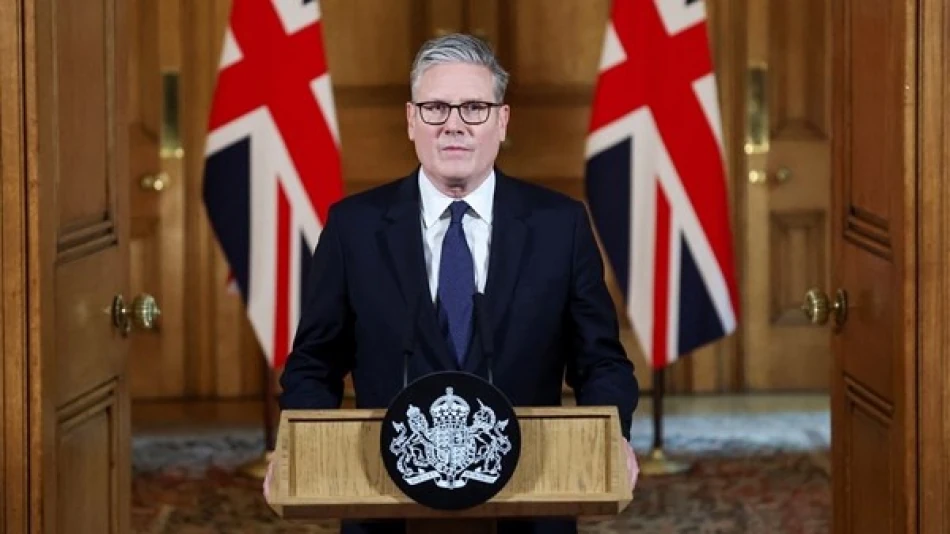
UK Prime Minister Appoints Cooper as Foreign Secretary in Cabinet Reshuffle
Starmer Reshuffles Cabinet as Deputy PM Rayner Steps Down
British Prime Minister Keir Starmer has conducted a significant cabinet reshuffle following the resignation of Deputy Prime Minister Angela Rayner, appointing Yvette Cooper as Foreign Secretary and repositioning key ministers across critical portfolios including immigration and justice. The shake-up signals Starmer's attempt to consolidate control and address mounting policy challenges facing his Labour government.
Major Portfolio Changes Signal Policy Shift
The reshuffle sees former Foreign Secretary David Lammy taking on a dual role as both Deputy Prime Minister and Justice Secretary, an unusual combination that suggests Starmer is prioritizing experienced hands in senior positions. This move consolidates significant power under Lammy, who brings international diplomatic experience to the deputy role while inheriting Britain's complex justice reform agenda.
Cooper's appointment as Foreign Secretary marks a return to frontline politics for the veteran MP, who previously served in senior roles under Gordon Brown's government. Her appointment comes at a critical juncture for British foreign policy, with ongoing challenges in Ukraine, complex relationships with the EU post-Brexit, and evolving dynamics with both the US and China.
Immigration Takes Center Stage
Perhaps the most politically sensitive appointment is Shabana Mahmood's move to Home Secretary, where she will tackle the contentious issue of illegal immigration. This portfolio has proven to be a career-defining challenge for previous holders, with public pressure mounting over Channel crossings and asylum processing backlogs.
Mahmood's appointment suggests Labour is taking a more assertive stance on immigration control, potentially moving away from traditional party positions to appeal to swing voters who prioritized border security in recent elections. Her background as a barrister may prove valuable in navigating the complex legal frameworks surrounding immigration policy.
Broader Cabinet Restructure Reflects Governing Priorities
The reshuffle extends beyond the senior positions, with new appointments across Environment, Business, Housing, and Work and Pensions departments. This comprehensive restructure indicates Starmer's recognition that his government needs fresh momentum across multiple policy areas, particularly housing and environmental policy where Labour made significant electoral promises.
The timing of Rayner's departure and the subsequent reshuffle suggests internal pressure within the Labour Party, possibly over policy direction or performance issues. Rayner, a key figure in Labour's rise to power, represented the party's more traditional left-wing base, and her exit may signal a shift toward the political center.
Political Implications and Challenges Ahead
This cabinet reshuffle represents Starmer's most significant reorganization since taking office, reflecting both opportunity and necessity. With Labour holding a substantial parliamentary majority, the Prime Minister has room to experiment with ministerial appointments, but the changes also suggest recognition that his government's initial approach required adjustment.
The success of these appointments will likely be measured against Labour's ability to deliver on key electoral promises, particularly regarding economic growth, housing supply, and immigration control. Cooper's diplomatic skills will be tested immediately on the international stage, while Mahmood faces the politically treacherous task of implementing immigration policies that satisfy both party supporters and broader public opinion.
Most Viewed News

 Layla Al Mansoori
Layla Al Mansoori






